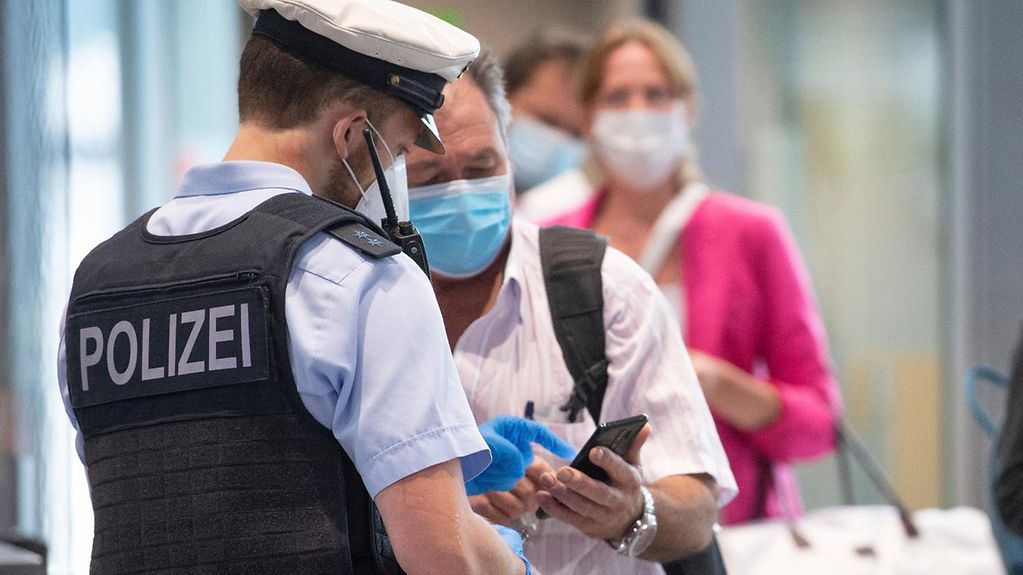Changes to quarantine rules
The global infection situation remains very dynamic. In view of the high volume of travel and border traffic, the Federal Cabinet has decided to extend and adapt the quarantine rules under the coronavirus immigration regulations. The changes are due to come into force on 28 July.
2 min reading time

Travel and border traffic can contribute to the coronavirus spreading more quickly in Germany, resulting in new centres of infection. The aim of the coronavirus immigration regulations is to prevent this from happening.
Photo: picture alliance/dpa
Incidence levels are still low in Germany as compared to other countries. In order to ensure this remains the case, tried-and-tested protective measures still need to be applied to slow down any further spread of the coronavirus. For this reason, the Federal Cabinet has decided to adapt the rules regarding quarantine on entry into Germany and extend them up to and including 10 September 2021
What are the changes?
- If an area changes classification from virus variant area to high-incidence area after an individual has arrived in Germany and during their 14-day isolation period, the regulations for high-incidence areas apply. In other words: it is possible to take a test from the fifth day onwards to avoid quarantine, and there is no quarantine requirement for vaccinated and recovered persons. In addition, quarantine on entry will end in future if the area in question is entirely removed from that classification during the isolation period.
- In the case of travellers entering Germany from virus variant areas, the quarantine requirement will not apply in future as long as the person has been vaccinated with a vaccine that is sufficiently effective against the variant which caused an area to be classified as a virus variant area.
Almost all countries in the world are still affected by the COVID-19 pandemic. Travel and border traffic can contribute to the coronavirus spreading more quickly in Germany, resulting in new centres of infection. The aim of the coronavirus immigration regulations is to prevent this from happening.
Since mid-May, the regulations have set out uniform, comprehensive requirements covering the various aspects of immigration, including registration, testing and certification requirements, and quarantine rules on entering Germany.
Detailed information on the immigration regulations currently in force is provided by the the Federal Ministry of Health. To find out which countries are currently classified as risk areas, high-incidence areas or virus variant areas, please refer to the list issued by the Robert Koch Institute (RKI)